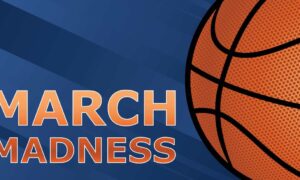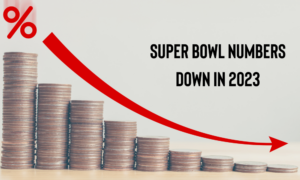
The Kansas City Chiefs have emerged victorious over the Philadelphia Eagles by a narrow margin of three points, winning 38-35, in the Super Bowl LVII, marking the end of another NFL season.
So, what’s the next step? Of course, everyone is curious about every aspect of the gambling figures. This encompasses the total amount bet on the game and on which team, in addition to the overall profit of sports books, including hold percentages.
Every year, the Gaming Control Board in Nevada releases figures. However, upon further analysis, it was discovered that the win amounts for the last two Super Bowls were reported inaccurately.
To summarize, the earnings and profit percentages of the Nevada sportsbook were exaggerated, with the actual figures being less than first announced. The inaccuracies exceeded 50% for the 2025 Super Bowl and were around 30% for the big game in 2022.
Super Bowl holds in Nevada were lower than reported
Here’s a review of the win/hold figures that were initially reported inaccurately:
In 2025, the book win was $11.2 million with a 7.4% hold. In 2022, the book win was $15.4 million with an 8.6% hold.
The accurate, revised figures are as follows:
In 2025, the book secured a win of $5.4 million with a 3.6% hold, while in 2022, the book win was $11 million with a hold of 6.2%.
The figures provided have not been audited. We provide press releases containing this information to ensure accuracy for stakeholders and as an informational courtesy.
According to reports released on Monday post-game, Nevada’s 185 sportsbooks generated a total of $153.2 million from Super Bowl betting in 2025. This represents a 14.8% decline from 2022.
Examining the previous ten Super Bowls, the highest hold percentage was recorded in 2014 at 16.5%, resulting in a win total of $19.6 million. Conversely, the lowest hold percentage was observed in 2018, coming in at 0.7% and yielding a book win of $1.1 million.
Defining hold percentages in the sports betting world
What does hold percentage mean? It is the term used to describe the amount of “tax” that sportsbooks retain from each dollar bet. The percentages can vary depending on the type of bet made.
In general, it is the sportsbooks that determine the odds, and though it would be ideal to see equal money on both sides, this is not practical. Sportsbooks gain their earnings over time by maintaining a high percentage of odds.
When you’re calculating probabilities for placing bets, you may observe that adding the two sides results in a number exceeding 100. This happens because sportsbooks charge a “tax” when accepting your bets.
The sportsbook’s hold is calculated by adding up the probability of the outcomes and then subtracting 100.
In general, holds with two outcomes usually amount to less than 5%, while bets involving dozens of outcomes can reach up to 50%.







